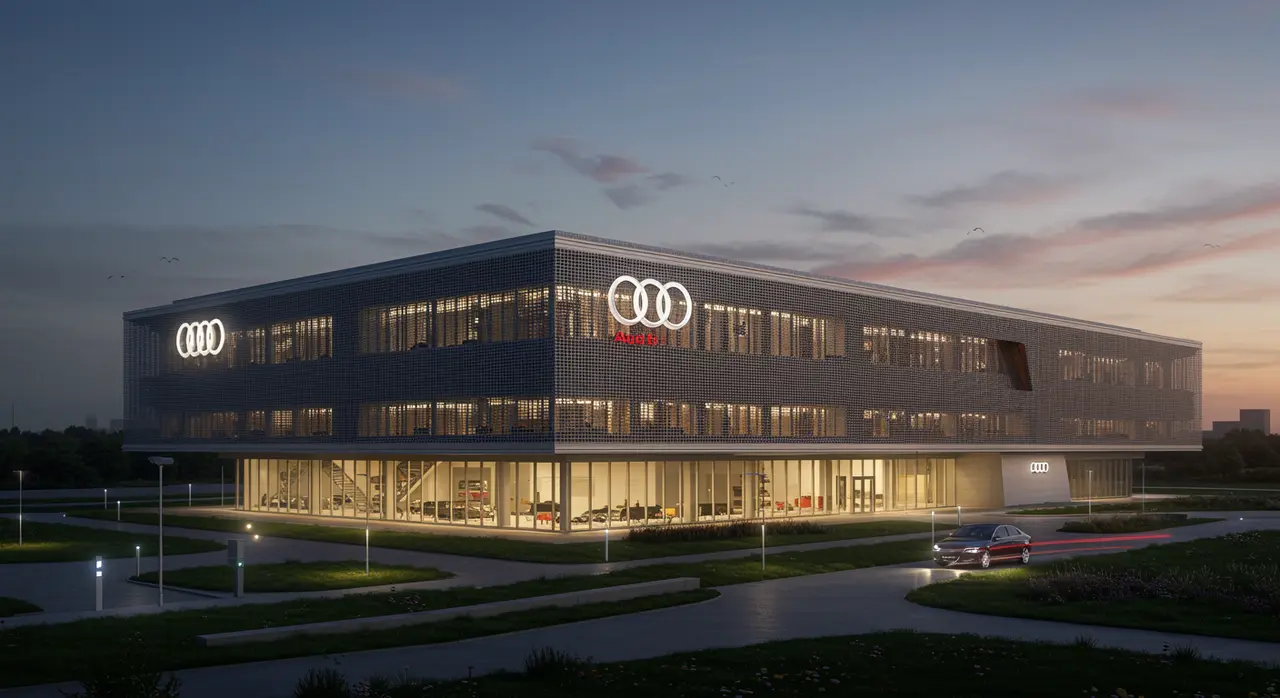Audi Leverages Kubiya AI to Overcome Kubernetes Skills Gap and Revolutionize Scalability
50 views
The Kubernetes Conundrum: Scaling Amidst a Persistent Skills Gap
Kubernetes, the open-source orchestration platform that has revolutionized containerized computing, continues its meteoric rise in adoption across enterprises worldwide. Its promise of automated scalability and reliability has become indispensable in modern software development. Yet, as organizations race to integrate Kubernetes into their digital ecosystems, a formidable challenge remains: the scarcity of seasoned professionals capable of navigating its complexities. Sebastian Kister, product team lead at Audi’s container competence center, aptly likens Kubernetes to public transport for compute—a secure, automated system that moves workloads seamlessly across nodes. However, much like public transport, the system requires skilled operators to ensure smooth functioning, and therein lies the rub.
Kister’s team at Audi has embraced Kubernetes as a cornerstone of their digital transformation strategy, leveraging its capabilities to manage scalable computing with precision. But the difficulty in sourcing senior engineers with deep Kubernetes expertise has become a bottleneck, threatening to stall progress. To counteract this, Kister turned to Kubiya’s agentic AI platform, a cutting-edge solution designed to bridge the operational gaps that arise from skill shortages. Kubiya’s AI agents specialize in addressing critical use cases such as runtime security, reliability, and incident remediation, all while adhering to stringent policy and compliance frameworks.

The results have been nothing short of transformative. Audi’s adoption of Kubiya has slashed mean time to resolution (MTTR) from eight hours to a mere 30 minutes, an achievement that underscores the platform’s ability to streamline incident management. Additionally, the number of incidents has dropped by a staggering 80%, showcasing the AI’s prowess in proactive problem-solving and system stabilization. These improvements are not just metrics on a dashboard; they represent a seismic shift in how teams handle operational challenges, freeing developers to focus on innovation rather than firefighting.
AI Agents: The Unsung Heroes of Enterprise Scalability
Kubiya’s AI agents operate with a level of intelligence that goes beyond mere automation. They are designed to alleviate the interpersonal friction and context overload that often plague development teams, particularly in high-stakes environments where rapid decision-making is crucial. By automating troubleshooting processes and providing actionable insights, the platform empowers developers to concentrate on creative problem-solving rather than being bogged down by repetitive tasks. This enhancement in productivity is further amplified by the platform’s ability to foster better communication within teams, eliminating the blame culture that can arise during incident resolution.
For Audi, the adoption of Kubiya has enabled what Kister describes as “asymmetric scaling.” In essence, the team has managed to expand its operational capacity without proportionally increasing its resources—a feat that is as cost-effective as it is innovative. By reducing reliance on scarce Kubernetes expertise, the platform has not only lowered infrastructure costs but also ensured that the team remains agile and efficient. This approach has proven particularly valuable in the current climate, where enterprises are under pressure to do more with less, balancing the demands of rapid technological advancement with the constraints of limited budgets and talent pools.
Kubiya’s impact extends beyond the technical realm, touching on the human dynamics of team collaboration. The platform’s ability to simplify troubleshooting and streamline communication has created an environment where developers can work harmoniously, free from the tensions that often arise in high-pressure scenarios. This cultural shift is as critical as the technological advancements, fostering a sense of unity and purpose that is essential for sustained innovation.
Bridging the Gap: The Future of Kubernetes and AI Integration
The challenges posed by the Kubernetes skills gap are unlikely to disappear overnight. As the technology continues to evolve, so too will the demands placed on those who manage it. However, solutions like Kubiya offer a glimpse into a future where AI can act as a bridge, compensating for human limitations while enhancing overall efficiency. The platform’s success at Audi serves as a compelling case study, demonstrating how intelligent systems can transform operational workflows and enable teams to scale without being constrained by resource shortages.
Yet, the integration of AI into Kubernetes management is not without its own set of challenges. Enterprises must navigate issues related to trust, compliance, and the ethical implications of relying on automated systems for critical decision-making. Kubiya’s adherence to strict policy frameworks offers reassurance, but broader conversations about the role of AI in enterprise operations are still in their infancy. As adoption grows, these discussions will become increasingly important, shaping the trajectory of both technologies.
For now, the partnership between Kubernetes and AI represents a powerful synergy, one that holds immense potential for organizations willing to embrace it. Audi’s experience highlights the transformative impact that can be achieved when cutting-edge technology is paired with forward-thinking leadership. As enterprises continue to grapple with the complexities of scaling, solutions like Kubiya will undoubtedly play a pivotal role in redefining what is possible.
In the grander scheme, the story of Kubernetes and Kubiya is one of adaptation and resilience—a testament to the ingenuity of those who refuse to be limited by the constraints of the present. It is a reminder that every challenge, no matter how daunting, carries within it the seeds of innovation. For Audi and countless other organizations, the journey is far from over, but the path forward is illuminated by the promise of progress.